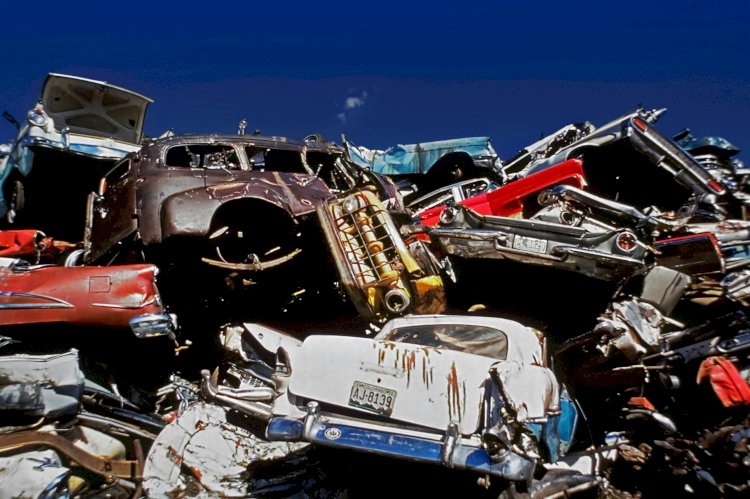What Are the Different Types of Diesel Fuel in Brisbane

Diesel fuel is essential for many industries in Brisbane, such as transportation, mining, and agriculture. Diesel fuel is a type of fuel that is made from crude oil and has a higher energy density than gasoline. It is also more efficient than gasoline, which makes it a popular choice for industries that require heavy machinery and vehicles. However, not all diesel fuel is the same, and it's essential to know the different types of diesel fuel available in Brisbane.
This blog will discuss the different types of diesel fuel available in Brisbane, their properties, and their uses.
- Ultra-Low Sulfur Diesel (ULSD) - ULSD is a type of diesel fuel with a sulfur content of 15 parts per million (ppm) or less. It was introduced in Australia in 2006 to reduce harmful emissions from diesel-powered vehicles and equipment. ULSD is the most common fuel types available in Brisbane and is used for most diesel-powered vehicles and equipment.
- Low Aromatic Diesel - Low Aromatic Diesel (LAD) is a diesel fuel with a low concentration of aromatic hydrocarbons. Aromatic hydrocarbons are a type of organic compound found in diesel fuel and are known to harm human health and the environment. LAD has a maximum aromatic content of 10% and is commonly used in urban areas and underground mining operations.
- Biodiesel: Biodiesel is a renewable fuel from vegetable oils, animal fats, and recycled cooking oil. It is a cleaner-burning fuel than traditional diesel and can reduce emissions of carbon monoxide, particulate matter, and other harmful pollutants. Biodiesel is commonly used in blends with Ultra-Low Sulfur Diesel (ULSD), and the most common blend is B5, which contains 5% biodiesel and 95% ULSD.
- Renewable Diesel: Renewable diesel is a diesel fuel made from renewable sources such as vegetable oils, animal fats, and waste oils. Unlike biodiesel, renewable diesel is a chemically identical hydrocarbon to petroleum diesel and can be used in existing diesel engines without modification. Renewable diesel is a cleaner-burning fuel than traditional diesel and can reduce emissions of greenhouse gases and other harmful pollutants.
- Arctic Diesel: Arctic diesel is a diesel specially formulated for cold climates. It has lower pour and cloud points than traditional diesel fuel to remain fluid at colder temperatures. Arctic diesel is commonly used in northern parts of Australia, where temperatures can drop below freezing.
- Marine Diesel: Marine diesel is a fuel used in marine engines, such as boats and ships. It has a higher sulfur content than ULSD and is commonly used in marine vessels that operate in international waters. However, marine diesel in Australia is subject to a maximum sulfur content of 1,000 ppm.
- Aviation Kerosene: (Jet A-1) Aviation kerosene, also known as Jet A-1, is a diesel fuel used in aircraft. It has a lower freezing point and a higher flash point than traditional diesel fuel, which makes it suitable for use in high-altitude environments. Jet A-1 is also subject to stringent quality control standards to ensure it meets the requirements of aviation authorities.
Read More - Easy and Hassle-free Ways to Sell Your Used Car for Cash
Each type of diesel fuel has unique properties and uses, and it's essential to choose the right type for your specific needs. Here are some factors to consider when choosing diesel fuel:
- Emissions: To reduce emissions from your diesel-powered equipment or vehicles, consider using biodiesel or renewable diesel.
- Climate: Diesel fuel is widely used in Brisbane, but not all diesel fuel is created equal regarding its impact on the climate. Several different types of diesel fuel are available, including biodiesel, renewable diesel, and ultra-low sulfur diesel.
- Sulfur Content: Sulfur content in diesel fuel can cause harmful emissions, such as sulfur dioxide and particulate matter. Choose low-sulfur diesel fuel to reduce emissions.
- Additives: Some diesel fuels have additives that can improve engine performance and reduce wear and tear. Look for diesel fuels with detergents, lubricity enhancers, and corrosion inhibitors.
- Cold Weather Performance: In colder climates, diesel fuel can become thick and difficult to start. Look for diesel fuels with additives that improve cold-weather performance.
- Price: Diesel fuel prices can vary depending on location, supply, and demand. Consider the price when choosing diesel fuel, but don't sacrifice quality for a lower price.
Read Also - How to Sell an Accidental Car to Wreckers?
Considering these factors, you can choose the best diesel fuel for your needs, improving engine performance, reducing harmful emissions, and increasing fuel efficiency.
Share
What's Your Reaction?
 Like
0
Like
0
 Dislike
1
Dislike
1
 Love
0
Love
0
 Funny
0
Funny
0
 Angry
0
Angry
0
 Sad
0
Sad
0
 Wow
0
Wow
0














